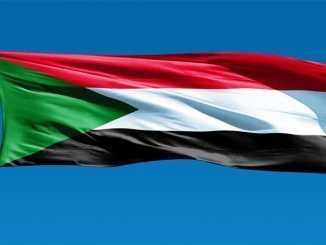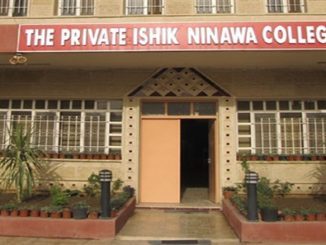
Egypt’s Ministry of Education has started to distribute the school meals among the Kindergarten and Primary pupils.
Randa Halawa, the General Director of the Central Administration for Dropouts Recovery said that for the first time the ministry of education signed a contract with the Armed Forces’ National Service Projects Authority (NSPA) to supply the school nutrition meals for pupils, according to Arabi21.
Randa Halawa said in a press statement that 90% of the food is produced and manufactured by the NPSA and the ministry of agriculture.
She explained that Al=Sisi assigned the ministry of social solidarity to put the nutrition plan for schools, pointing out that choosing the NPSA to supply the school meals for the students for the first time mainly aims to supply a meal including the basic nutrients to the students, such as biscuits or a dry meal, including cheese and bread.
In the same context, the Al-Azhar institutes sector signed a contract last August 23 with companies related to the Armed Forces to supply food to Al- Azhar institutes and to supervise its distribution, starting from the current academic year.
On August 30, 2016 in an unprecedented move, Cairo University signed a contract with Egypt’s Armed Forces Commission to supervise the food services and the hostel kitchens, as unveiled by Dr. Mohamed Osman Al-Khosht, the Cairo University Vice President for Education and Student’s Affairs.
Al-Khosht said in a press statement that many commissions have proposed to supervise the kitchens and restaurants of Cairo University hostels, but the university has chosen the Egyptian Armed Forces (EAF), adding that the EAF will perform the service at a high quality, and will provide the goods at the least prices, in addition to their commitment.
It is noteworthy that Cairo university has four hostels (one for boys and three for girls) and another semi-private hostel in Imababa. The number of students who reside in hostels ranges between 30,000 to 50,000 students.
Last July, the Supreme Council of Universities sent a direct order to 15 Egyptian universities to stop all the new deals and tenders on medicines and medical instruments to buy them from the medical service of the armed forces.
There are around 11 educational institutes and 18 university hospitals that followed the ministry of higher education. The annual purchases and expenses on the medical supplies for university hospitals is around 2 billion and 300 million pounds.
It is noteworthy that the budgets of university hospitals aren’t under the supervision of the ministry of health and population.
In the last period, Egypt’s Armed Forces were assigned to carry out 350 projects with millions of dollars according to a press statement form head of Military Engineering Authority General Emad al-Alfy.
The engineering authority implement three massive projects as new Suez Canal, giant road networks, and huge agriculture projects.
Egypt’s Armed Forces enjoy great privileges in bids and tenders, and its revenues are untaxed like other companies. In addition, the military resources don’t pass through the public treasury of the state.
In addition to the service projects, there is the National Authority for Military Production -that owns more than 15 factories for engineering, civil and military industries, the Arab Organization for Industrialization- which operates 11 factories and companies in the military and civilian industries, and the Engineering Authority of the armed forces -which is specialized in the military and civil construction.
According to a recent study released by” Carnegie Middle Eastern Center” last April on the Egyptian Armed forces and renewing its economic empire,” the armed forces have gained unprecedented power since the overthrown of two presidents.”
The study added,” By the marginalization of most of the prominent political competitors, receiving more $20 bn Gulf aids and the widespread domestic aid after al-Sisi reached power, the Egyptian Armed Forces secured its control over the giant infrastructure projects, and appointed military generals to positions in all the fields.”



